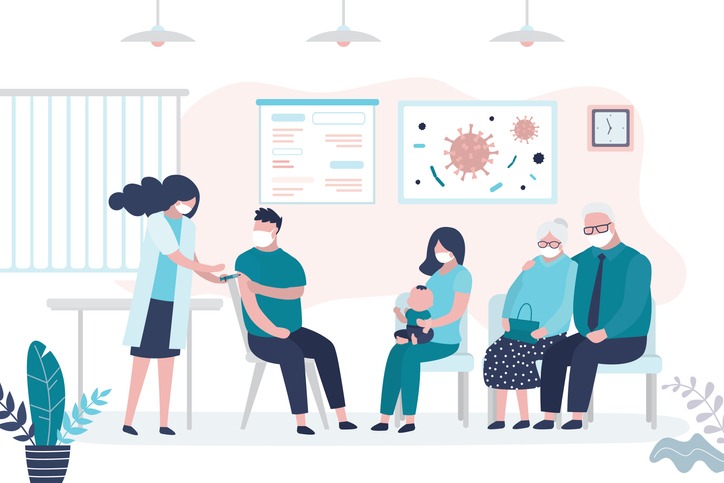
The nationwide mpox outbreak vaccination programme is scheduled to close at the end of July, but the latest diagnoses have prompted a rethink for London.
CREDIT: This is an edited version of an article that originally appeared on Nursing in Practice.
The mpox vaccination programme will be extended in London beyond the original closing date following the diagnosis of 11 new cases in the capital within the past few weeks, the UK Health Security Agency (UKHSA) has announced.
In addition, the UKHSA said it is keeping a close eye on any new cases and is working with NHS England and partners to assess feasibility of further options for vaccine availability around the country, particularly if new clusters emerge.
After the end of July, London-based vaccine appointments will be available to eligible people who regularly travel to London or abroad to have sex. Those eligible for the vaccine include gay, bisexual or other men who have sex with men who have multiple sexual partners, participate in group sex or attend sex on premises venues. Staff who work in these premises are also eligible.
The move to extend the vaccine programme in London follows Steve Brine, chair of the Health and Social Care Committee, writing to health secretary Steve Barclay earlier this month to express his concerns about the upcoming closure of the programme.
In addition, Jodie Crossman, co-chair of the STI Foundation and nurse representative to the British Association of Sexual Health and HIV, warned this week that the mpox virus ‘has not gone away’ and that nurses working in primary and community care must continue to be aware of patients presenting with symptoms.
On the extension of the vaccination programme, health minister Maria Caulfield said: ‘Thanks to the swift action taken to roll out mpox vaccines to the most vulnerable, overall cases across the country have been very low in recent months.
‘However, we must remain vigilant, and in light of the recent cases in London, it is right to extend the mpox vaccination programme in the capital for first and second doses.’
According to UKHSA, the majority of the 11 new cases were in unvaccinated individuals and three of the diagnoses were for people who had received only one dose.
Professor Susan Hopkins, chief medical adviser at UKHSA, said: ‘It is vital we respond to recent rises in cases, and that is why we are extending mpox vaccinations in London.
‘While mpox infection is mild for many, it can cause severe symptoms including unusual rashes and blisters, a fever and headache, so it’s important people remain alert to the risks.
‘Vaccination is key to reducing the severity of symptoms and preventing further transmission,’ Professor Hopkins added.
Dr Claire Dewsnap, president of the British Association for Sexual Health and HIV (BASHH), said: ‘We strongly encourage all those eligible to book an appointment to receive an mpox vaccination, especially given the worrying recent spike in cases.’
Meanwhile, Mr Brine from the Health and Social Care Committee said: ‘This is good news. While it’s encouraging to see the government responding quickly to the spike in cases in London there’s clearly a need to not become complacent, and to continue the roll out to prevent a surge of cases in future.
‘The government should ensure that adequate funding is in place for the delivery network, including sexual health clinics, to carry out this vital work, and I would welcome a commitment on this.’


Be the first to comment